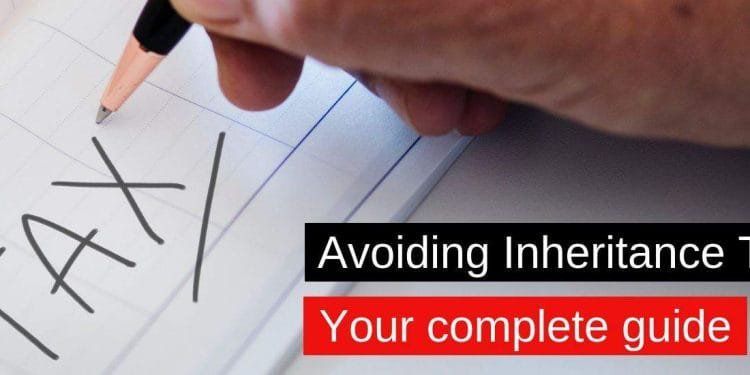It is sometimes difficult to find a way to manage your inheritance tax burden after you have passed away but with a will and some planning, it might be possible.To avoid inheritance tax you can give the property to your loved ones before you die. This will make the property not taxable when it’s passed on to them. Additionally, you can designate a beneficiary who will be responsible for paying the inheritance tax on the property when it’s transferred to them.
What is An inheritance tax?
Inheritance tax is a tax that is paid by an individual when she or he inherits property. The amount of inheritance tax that an individual must pay depends on the value of the property that he or she inherits. The UK tax year runs from February to January.
There are three types of inheritance tax in the UK: basic, higher and additional.
Basic Inheritance Tax: This is the lowest level of inheritance tax and it applies to assets worth less than £325,000. This rate is 20%.
Higher Inheritance Tax: If the value of an asset inherited is more than £325,000 but less than £1 million, then the individual will be subject to hereditary taxation (which is known as progressive taxation) which applies a 45% rate on the excess over £325,000. This means that if an individual inherits a property worth £400,000 then he or she will have to pay 45% of this amount – or £135,000 – in inheritance tax.
Additional Inheritance Tax: If an asset inherited is worth more than £1 million then the individual will be subject to an additional 40% rate of inheritance tax which applies on any amount over £2 million. So if someone inherits a property worth £3 million then they will have to pay 40% of this amount – or £1.6 million – in additional inheritance tax.
Effect on Business Owners
Inheritance tax can be a costly and stressful event for business owners. The following steps can help to avoid inheritance tax:
1. Review your will carefully to ensure that all of the relevant property is specifically included. This includes liabilities, such as mortgages, which may be attached to property.
2. devise your estate in a way that maximizes the amount of taxable property that passes to beneficiaries without incurring inheritance taxes. For example, have certain assets pass on immediately upon your death rather than waiting until after the year-long deadline imposed by British law.
3. Make provision for any remaining liabilities by transferring them into a trust or other arrangement ahead of time. Doing so will reduce the taxable value of the estate and thereby reduce the potential overall cost of inheritance tax.
4. Consult with an experienced estate planning attorney if you have any questions about how to avoid or minimize inheritance tax costs.
How to Avoid Inheritance Tax with a Will
If you have a will, your estate will not have to pay inheritance tax. However, Inheritance Tax (IT) can still be an expensive tax to pay, especially if your estate is large. Here are five ways to avoid IT with a will.
1. Make a Charitable Gift In Your Will
One option is to make a charitable gift in your will. This can reduce the size of your estate and consequently the amount of IT that you might have to pay. You can also use this method to split up your estate between beneficiaries in equal proportions or to make specific types of donations, like scholarships for your children or donor-advised funds for charities.
2. Use The Right Trusts For Your Money And Estate
Another way to reduce the size of your estate and potentially save on IT is by using trusts correctly. A trust can hold assets for you and distribute them at certain times after your death, such as during your lifetime or at death when you leave a legacy for people you care about. This way, the money doesn’t technically pass through your own inheritance tax-free but it does avoid paying any extra IT on the transferred assets.
3. Settling Planned Gifts Ahead Of Time Can Save You Money On Taxation
Some wealthy individuals choose to make planned gifts – usually in their wills – that are distributed at predetermined points in time like upon retirement or after a significant life event like getting married or having a child. These gifts help reduce taxable income
Four Benefits to Creating a Will
• Estate planning can reduce the tax burden on your loved ones.
• A will can make sure that your property is transferred to beneficiaries who you want it to go to, avoiding any disputes or unpleasant surprises.
• It can also help you avoid intestate succession, in which your property might pass to relatives who you may not have wanted it to.
• Having a will can even increase the value of your estate since people may be more likely to sell an estate with a will in place.

















































